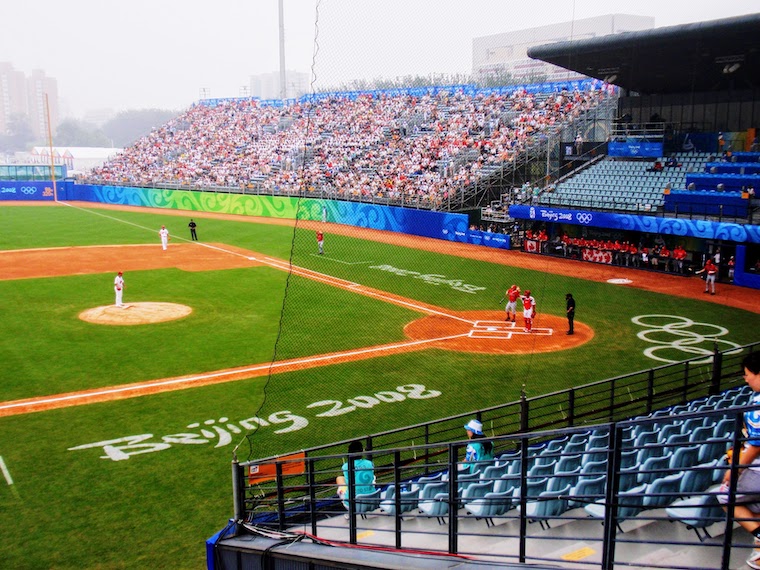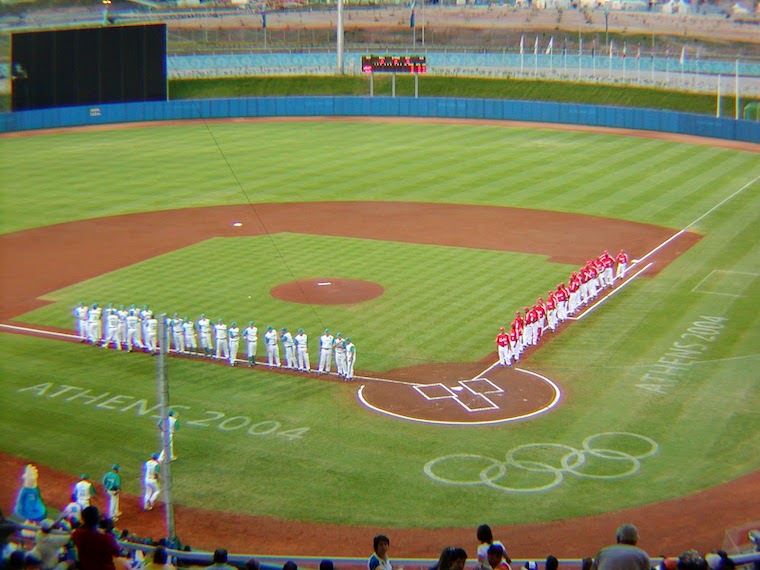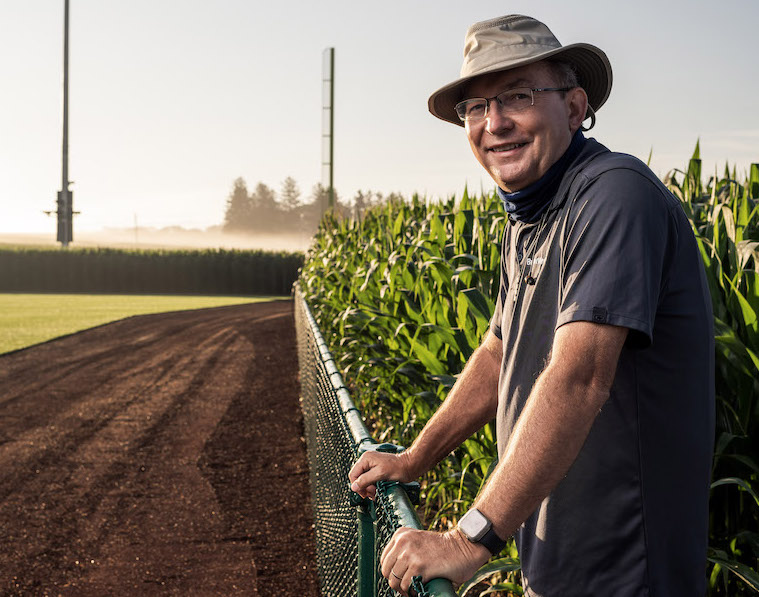In this edition of the SportsField Management Interview, we meet Murray Cook, president of Brightview Sportsturf. With more than 40 years of professional sports field management, design and construction experience, he has gained a wealth of knowledge in the development of sport venues. He has consulted in more than 60 countries. Brightview Sportsturf is Major League Baseball’s Official field consultant.
SportsField Management (SFM): You and I corresponded multiple times during 2020 regarding your work with the Field of Dreams. Sports field managers are accustomed to adjusting to unforeseen challenges, but nobody could have foreseen what 2020 had in store. What has the past year been like for you?

Cook: 2020 was challenging for everyone around the world – some more than others. Our hearts are heavy for all those who lost friends and family due to the virus. As you recall, we had almost completed the construction of the MLB field at the Field of Dreams movie site, and we were about a week out before the event was cancelled due to the pandemic. It was news no one wanted to hear, and all we could do was hope to play the game in 2021. Over the years, our industry has been challenged in sports and had to overcome various types of adversity. Last year we focused on keeping people safe while maintaining our fields and working with our clients. We will continue to do the same this year.
SFM: What do you think will be the lasting impact of 2020 on the sports field management industry, and what can be learned from dealing with these unprecedented challenges?
Cook: Everyone connected to the event industry worldwide was affected due to the numerous cancellations of games and concerts. However, I was really excited about how our industry quickly adapted to the changes that we were all up against during the difficult year. Many sports field managers were – and continue to be – under pressure to manage their fields with limited resources due to budget cuts, payroll reductions, etc. Sports field managers have always been resilient by nature, and I feel confident they will all be more prepared for future challenges after the past year.
SFM: Beyond COVID-19 and recovering from the year that has been, what are the other key issues facing the industry, and what is your advice for facing those issues?
Cook: As we work our way back to a “new normal,” there will continue to be unforeseen challenges along the way. Planning for concerts, sports events, etc., will probably have a different look. As you know, our sports field managers travel the world providing services, and many questions remain unanswered about working in other countries due to restrictions. An important step to a successful recovery is keeping all of our team members and families safe. As sports venues begin to ramp up in 2021, communicating clearly and frequently with our crews and teams will be extremely important toward building confidence and awareness at our stadiums and sports fields.

SFM: You have served, and continue to serve, STMA during your career – including having served as STMA president. How has STMA benefitted you, and what is your advice to other sports field managers when it comes to the importance of service to, and involvement in, the industry?
Cook: The STMA has come a long way since I was on the board, and the leadership has been incredible. I’m especially proud of how Past President Jimmy Simpson and the STMA staff guided us through the pandemic. Over the years, having a unified voice throughout the association was key toward building our members a more professional platform. When I started on the board as a professional member, there were a handful of chapters, and the association was struggling financially. Hats off to past board members like Rich Moffit, Greg Petry, Mike Schiller and all the STMA leadership that helped build a nest egg for the future of our association. Another tip of the hat to Abby McNeil, who leads our International Committee, as she guides us toward developing programs and relationships with other organizations around the world.
SFM: What are the keys to getting today’s youth interested in careers in sports field management, and what is your message to the next generation of sports field managers?
Cook: In my travels, I have seen how cultures approach sports field management differently. For example, in other countries, children are often encouraged to help with simple field maintenance in a fun and sharing way. Many schools are creating more courses in high school and colleges where our youth can be exposed to educational and trade opportunities. The continued development of these initiatives will provide more options for our sports field managers of tomorrow to develop and be successful. I’ve learned that you are only as good as the people you have working with you. I have been blessed to have some great team members over the years, and have had the honor to learn and work with outstanding crews around the world. My advice to the next generation: Make a plan, stick with it, and if you make a mistake learn from it, own it and move forward.

SFM: How do you think the profession and industry will change in the next 10 years, and/or what would you most like to see in terms of industry advancement in the future?
Cook: It’s amazing how far we have already come in the advancement of new turfgrasses, equipment and synthetics in the past 20 years. We are in an era of our industry that I see as cyclical. New varieties of natural grass and equipment to manage sports fields are continuing to improve and provide more durable natural grass fields. We have witnessed the evolution of the groundskeeper/sports turf manager/sports field manager, and now the sports field event manager. I’m optimistic by nature, which is pretty common in our line of work, and I believe the future of our industry will continue to evolve and adjust to be successful. Multi-use venues will come and go, and as long as we work together as an industry to provide safe fields for our athletes, value to our owners and aesthetically pleasing fields for fans, we will be fine. We are all students of our trade. Sharing information and what we learn with others will continue to make us a stronger industry in the future.


